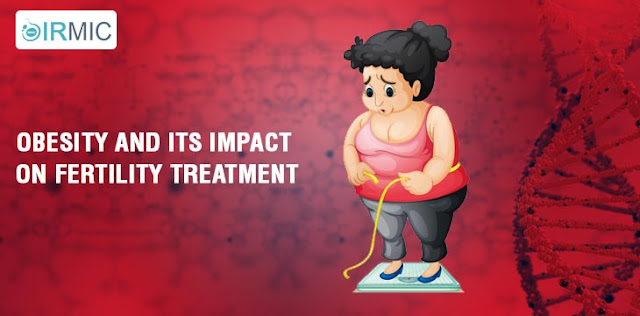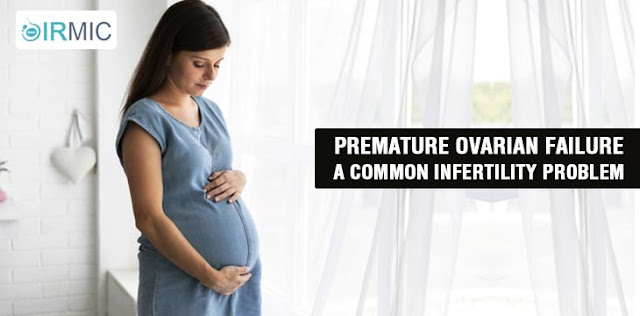Obesity And Its Impact On Fertility Treatment
In the last few decades, there has been a
transformation in lifestyle and socio-economic circumstances worldwide.
This has pointed to a rise in obesity. Obesity has now become a major
pandemic.
Rising prevalence of obesity is seen both in advanced and developing countries. In England, it is seen that 56% of ladies are either overweight or fat. More than 30% of women in the United States are affirmed to be obese. The prevalence of obesity is rising even in developing countries. Over the last 20 years, the obesity valuations have tripled in the developing environment and now it is perceived that 10% of all children over the world are overweight or overweight.
Obesity is found to check successful pregnancy rates in both direct and assisted conception cycles. Ovulation and conception require a fine combined balance of hormones discharged by reproductive organs. Obesity conflicts with this in several approaches. Overweight and obese ladies require a higher dosage of gonadotropin, with a more prominent number of days of stimulation and still have lower peak estradiol levels with an enhanced risk of cycle retirement due to poor follicular maturation.
A loss of just 5%–10% of weight loss can improve fertility outcomes and lead to an improvement in endocrine parameters. It is hence vindicated that for overweight and obese infertile women after initial evaluation for infertility, weight supervision interferences like a lifestyle transformation, diet, exercise or drug to reduce weight, should be advised first before starting with any treatment modality. Obesity is a modifiable risk circumstance. It impairs fertility, its treatment, and obstetrics result. Women with elevated BMI should be first inspired to reduce weight before commencing any treatment for infertility or planning conception.
Content Source : https://drrksharmaivf.in/blog/obesity-and-its-impact-on-fertility-treatment/
Rising prevalence of obesity is seen both in advanced and developing countries. In England, it is seen that 56% of ladies are either overweight or fat. More than 30% of women in the United States are affirmed to be obese. The prevalence of obesity is rising even in developing countries. Over the last 20 years, the obesity valuations have tripled in the developing environment and now it is perceived that 10% of all children over the world are overweight or overweight.
What WHO Says About Obesity And Its Impact On Fertility Treatment?
The World Health Organization has designated obesity as a body mass index (BMI) higher than or equal to 30 kg/m2. Elevated body mass index (BMI) influences various characteristics of infertility treatment and assisted reproductive technology (ART) systems. The extent of this impact is, however, contrasting in literature. 0.1 unit gain in waist-hip ratio (WHR) leads to a 30% reduction in the likelihood of conception per cycle.Obesity is found to check successful pregnancy rates in both direct and assisted conception cycles. Ovulation and conception require a fine combined balance of hormones discharged by reproductive organs. Obesity conflicts with this in several approaches. Overweight and obese ladies require a higher dosage of gonadotropin, with a more prominent number of days of stimulation and still have lower peak estradiol levels with an enhanced risk of cycle retirement due to poor follicular maturation.
Ovarian Stimulation Rate In Obese Women
On regulated ovarian stimulation there are fewer number and the poor state of oocytes recorded in these women. They have more moderate fertilization and pregnancy rates. The impact of obesity upon implantation time has also been unpredictably reported. Some investigations have recognized a reduction in implantation rates among obese women. There are more distinguished obstetric complexities with a lower live birth rate in these ladies.How Weight Loss Improves Response To Ovarian Stimulation In Infertility Treatment?
Weight loss results in the regularization of the menstrual pattern, a reduction in cancellation rates, an uptick in the number of embryos available for transfer, a decline in the number of IVF cycles required to achieve pregnancy and a decrease in miscarriage rates. Obese women who lose weight tend to have natural ovulation and enhanced reply to ovarian stimulation in impotence treatment.A loss of just 5%–10% of weight loss can improve fertility outcomes and lead to an improvement in endocrine parameters. It is hence vindicated that for overweight and obese infertile women after initial evaluation for infertility, weight supervision interferences like a lifestyle transformation, diet, exercise or drug to reduce weight, should be advised first before starting with any treatment modality. Obesity is a modifiable risk circumstance. It impairs fertility, its treatment, and obstetrics result. Women with elevated BMI should be first inspired to reduce weight before commencing any treatment for infertility or planning conception.
Reference
If you are an obese candidate looking for IVF treatment in Delhi, try meeting Dr. RK Sharma who has performed more than 15000 IVF cases successfully and more new success stories are getting added day after day in his kitty.Content Source : https://drrksharmaivf.in/blog/obesity-and-its-impact-on-fertility-treatment/




Gynecologist in Indore near Vijay Nagar
ReplyDeleteList of gynecologist in Indore
Best Gynecologist in Indore